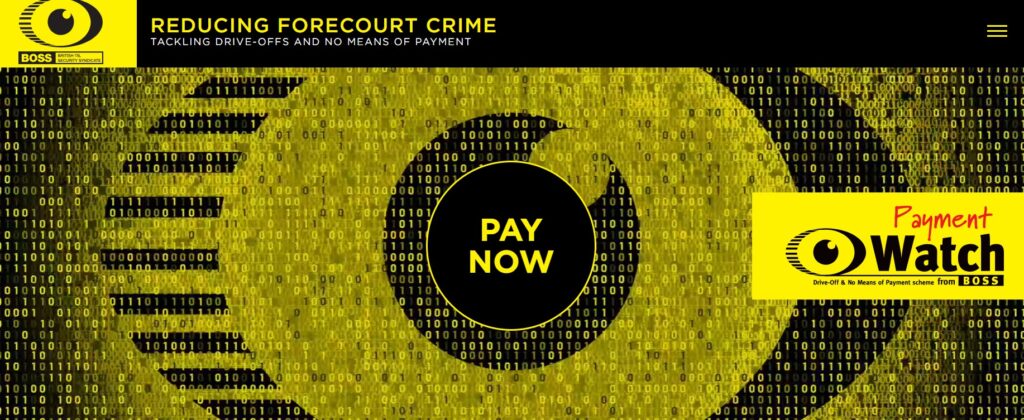Enough Is Enough: It’s Time to Get Serious About Drive-Offs

By Kevin McPartlan, CEO of Fuels for Ireland
Drive-offs have always been an unwelcome element in the running of a forecourt, but what was once an occasional frustration for the stations and members of An Garda Síochána alike, has become a routine and increasingly costly threat to our businesses. What’s more, it is a threat that is growing rapidly, largely unchecked, and – as things stand – with no meaningful deterrent.
Mounting Financial Stress
Fuels for Ireland estimates that more than €10 million is lost every year from forecourts across the country due to customers driving away without paying. That figure is a conservative one based on incomplete data, but it already represents a significant and unnecessary hole in the bottom line of an industry that operates on some of the thinnest margins in the retail sector. For many operators, the losses are even larger. Recent member reports suggest some sites are now losing up to €40,000 annually to fuel theft. These are not minor incidents; they are material losses that directly threaten the viability of smaller businesses.
Despite the scale of the problem, there is a widespread reluctance by An Garda Síochána to treat drive-offs for what they are – theft. Too often, retailers are told that these incidents are a civil matter, that Gardaí are “not debt collectors”, or that there is little point in pursuing a case. The law is unambiguous: Section 8 of the Criminal Justice (Theft and Fraud Offences) Act 2001 defines “making off without payment” as a criminal offence. When someone fills their tank and drives away without paying, they are committing a crime. The refusal to investigate or prosecute sends a clear message to offenders – that they can act with impunity – and it leaves retailers exposed and unsupported.
A Reluctance to Enforce
The lack of meaningful Government attention to the problem is equally troubling. Perhaps it is not entirely unrelated to the fact that the State still collects excise duty and VAT on fuel that is stolen. Whether or not payment is made, the tax is due at the point of supply. This counterproductive incentive means that the Exchequer is insulated from the financial consequences of drive-offs, while small businesses are left to absorb the loss.
The facts are undeniable: it is small businesses who suffer. Consumers may assume that the brand name on the canopy or pump implies deep pockets and corporate resilience, but the reality is that most Irish forecourts are owned and operated by local families. They are community employers, often working 365 days a year, and they are the ones left carrying the financial burden when a thief drives away.
The problem is not confined to a few isolated incidents. Retailers are reporting repeated drive-offs by the same vehicles, increasing use of cloned or obscured number plates, and deliberate tactics to avoid identification. Some sites now experience multiple incidents per week. This is organised, habitual criminal behaviour – and yet it remains a low priority for enforcement.
It doesn’t have to be this way. In Britain – and indeed in Northern Ireland – an industry-run scheme, the British Oil Security Syndicate (BOSS), has been operating successfully for decades. BOSS uses a data-sharing mechanism, fully compliant with data protection legislation, to identify the registered keepers of vehicles involved in drive-offs and pursue recovery of the debt. It works: the scheme consistently recovers more than 90% of losses.
Fuels for Ireland has long argued for the establishment of a similar model in the Republic of Ireland. We have repeatedly made the case that a properly designed system – one that respects GDPR and the rights of vehicle owners – could make a substantial difference in tackling fuel theft. We have also pointed out the obvious inconsistency: access to vehicle registration data is already provided to toll road operators to ensure they can collect payment. It is almost impossible to understand why forecourt operators, who are suffering the financial impact of theft, cannot be given equivalent access to recover their losses.
The response from policymakers has so far, been unconvincing. We have been told that data protection law is an insurmountable obstacle, even as the same legal framework allows for extensive data sharing elsewhere in the transport system. This is not a legal problem; it is a political and policy choice. And it is one that leaves Irish forecourts uniquely exposed compared to our counterparts in the UK and other EU states.
Signs of Progress and a Path Forward
There are signs, however, of a shift in attitude. Fuels for Ireland has raised this issue directly with Jim O’Callaghan, Minister for Justice, and Alan Dillon, Minister of State for Small Business and Retail. We welcome the fact that both ministers appear more open to working with industry to find a reasonable, proportionate solution. But words will not solve this problem – only decisive action will.
Drive-offs are theft. They are not a civil dispute. They are not a minor inconvenience. They are a criminal act that inflicts serious financial harm on Irish businesses and distorts an already difficult trading environment. As an industry, we will continue to do everything we can to deter and prevent them. But it is time for Government and An Garda Síochána to step up too – to enforce the law that already exists, to support legitimate businesses, and to show that those who steal fuel from forecourts will face real consequences. Anything less should not be acceptable.










